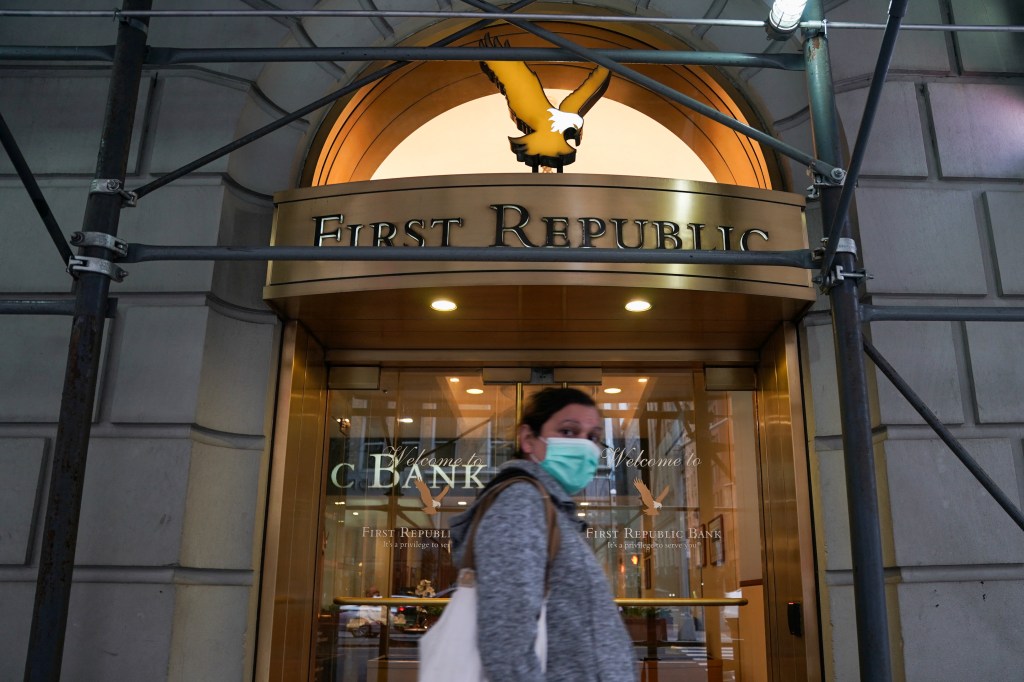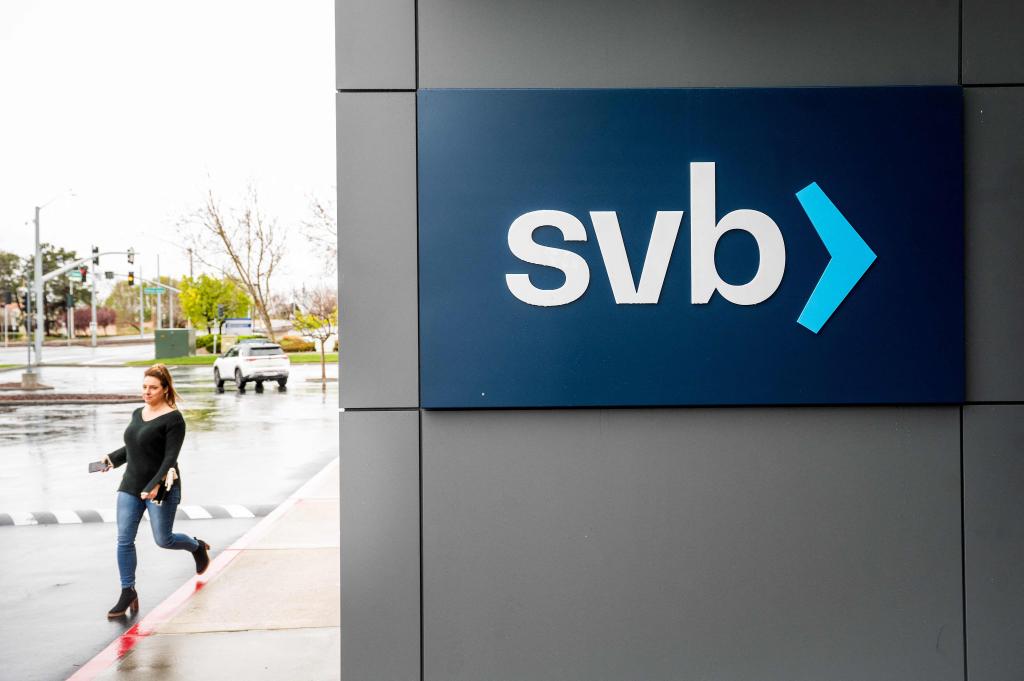FDIC chair sounded alarms over US bank risks — just days before SVB implosion
Contact The Author
The head of the federal agency in charge of protecting bank depositors warned that some US banks were a disaster waiting to happen — just days before the stunning collapse of Silicon Valley Bank.
Martin Gruenberg, the chairman of the Federal Deposit Insurance Corporation (FDIC), told finance lobbyists last Monday that massive “paper” losses totaling $620 billion — a staggering sum that could threaten a significant chunk of the US financial sector — “weaken a bank’s ability to meet unexpected liquidity needs.”
“Meaningful deposit outflows have not yet materialized, but banks will need to watch these trends carefully as the interest rate environment evolves,” Gruenberg said.
“Most banks have some amount of unrealized losses on securities,” he said. “Unrealized losses on securities have meaningfully reduced the reported equity capital of the banking industry.”
An unrealized loss or gain describes the value of an asset that has yet to be sold.
“The total of these unrealized losses, including securities that are available for sale or held to maturity, was about $620 billion at year-end 2022,” Gruenberg told the Institute of International Bankers on March 6.
“The current interest rate environment has had dramatic effects on the profitability and risk profile of banks’ funding and investment strategies,” Gruenberg told lobbyists last week.
On Monday, shares of regional banks were getting hammered in early trades as fears about their liquidity persisted, even as the Fed and President Biden doubled down on reassurances that depositors would be protected.
Shares of First Republic Bank plunged 76%. PacWest Bancorp’s stock price was down by 44% while Western Alliance Bancorp shares plummeted 79%.
Charles Schwab’s stock price fell by some 17% on Monday while Bank of America shares shed around 4%.
JPMorgan warned in November that SVB was vulnerable due to “$16 billion in unrealized losses,” according to an analysis reviewed by The Post on Sunday.
A week before the comments from FDIC’s Gruenberg, Moody’s Investors Service, which gauges credit ratings and provides risk assessment to investors in the capital markets, downgraded Silicon Valley Bank’s credit.
SVB then tried to sell $2 billion worth of its investments at a loss in hopes of shoring up its balance sheet — fueling alarm among investors and triggering a run on the bank.
SVB, which until recently was the nation’s 16th-largest bank with $209 billion in assets under management, had gained a reputation on Wall Street as the go-to financial lender for thousands of venture capital firms and tech startups.
In 2021, VC-backed firms raised some $330 billion — which was double the amount raised during the previous year.
With interest rates at extremely low levels at the time, tech companies were awash in cheap cash.
They deposited the money with lenders including SVB, which then turned around and invested the cash into long-term mortgage-backed securities and bonds.
When the Fed hiked interest rates, however, the value of those investments plummeted.
Follow The Post’s coverage of Silicon Valley Bank’s collapse
- Ex-Silicon Valley Bank CEO Greg Becker jets to Hawaii after collapse
- Goldman Sachs lost $200M in recent US banking chaos: report
- Kevin O’Leary grilled on why he kept money at SVB if management were ‘idiots’
Given the falling revenues in the technology sector in recent months, the bank struggled to plug the gaping hole in its balance sheet.
Regulators in California and Gruenberg’s FDIC stepped in and shut down SVB once depositors panicked and tried to get their money out.
The reverberations of SVB’s collapse were felt over the weekend, when regulators closed down Signature Bank, the real estate lender which had been heavily invested in the struggling cryptocurrency sector.
The Federal Reserve said it will create a new Bank Term Funding Program to offer depository institutions loans of up to one year, backed by US Treasury securities and other assets, to help the banks.
The feds said the steps they are taking “will ensure that the U.S. banking system continues to perform its vital roles of protecting deposits and providing access to credit to households and businesses in a manner that promotes strong and sustainable economic growth.”
Biden defended the stability of the US banking system on Monday morning after the stunning collapse of Silicon Valley Bank sparked fears of a major economic crisis.
“Thanks to the quick action of my administration over the last few days, Americans can have confidence that the banking system is safe,” Biden said. “Your deposits will be there when you need them.”
Additional reporting by Lydia Moynihan and Thomas Barrabi







